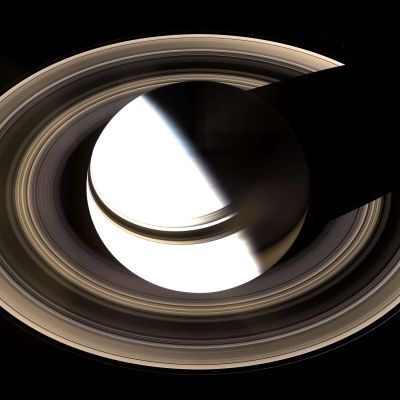Listen to exciting, non-technical talks on some of the most interesting developments in astronomy and space science. Founded in 1999, the Silicon Valley Astronomy Lectures are presented on six Wednesday evenings during each school year at Foothill College, in the heart of California's Silicon Valley. Speakers include a wide range of noted scientists, explaining astronomical developments in everyday language. The series is organized and moderated by Foothill's astronomy instructor emeritus Andrew Fraknoi and jointly sponsored by the Foothill College Physical Science, Math, and Engineering Division, the SETI Institute, the Astronomical Society of the Pacific, and the University of California Observatories (including the Lick Observatory.)
http://youtube.com/svastronomylectures
Gesamtlänge aller Episoden: 2 days 10 hours 50 minutes
episode 4: Beyond: Our Future in Space (with Dr. Chris Impey)
Decades after we last set foot on the Moon, and several years after the Space Shuttle was retired, space activity is finally leaving the doldrums. Permanent bases on the Moon and Mars are now within reach, and a new Space Race is brewing, with Asian countries ascendant. Dr. Impey (University of Arizona) reviews the history and landmarks of the international space program, gives a snapshot of the current situation, and plots the trajectory of the future of space travel. Recorded on Feb...
episode 5: Ocean Worlds in Our Solar System (with Dr. Kevin Hand)
Where is the best place to find living life beyond Earth? It may be that the small, ice-covered moons of Jupiter and Saturn harbor some of the most habitable real estate in our Solar System. Life loves liquid water and these moons have lots of it! Such oceans worlds have likely persisted for much of the history of the solar system, and as a result they are compelling targets for our exploration. Dr...
episode 2: Meet the Neighbors: Exploring Planets Orbiting Nearby Stars (with Dr. Courtney Dressing)
The NASA Kepler mission revealed that our Galaxy is teeming with planetary systems and that Earth-sized planets are common. However, most of the planets detected by Kepler orbit stars too faint to permit detailed study. The NASA Transiting Exoplanet Survey Satellite (TESS,) launched in 2018, is finding hundreds of small planets orbiting stars that are much closer and brighter. Dr...
episode 4: The Biggest Sky Survey Ever Undertaken: Exploring the Universe with the Rubin Observatory (with Dr. Phil Marshall)
The Vera Rubin Observatory will house a survey telescope that will image the night sky faster and deeper than ever before. Its camera, at 3.6 Gigapixels, will be the biggest digital camera ever built. The Rubin Observatory will be able to image the entire visible sky every few nights, and build up, over 10 years, a 900-frame full color movie of the deep night sky...
episode 2: Postcards from Mars: The Latest from Our Robot Explorers (with Dr. Jim Bell)
Prof. Jim Bell (of Arizona State University), who is a key leader in projects to take images with NASA's rovers on Mars, discusses the history and current state of our exploration of the red planet. He summarizes the scientific findings from the Spirit, Opportunity, Curiosity, and Perseverance missions. He puts each mission into the larger context of the questions we are asking -- both about Mars today and about ancient Mars, which could have been far more hospitable for life.
episode 1: The Last Stargazers: Behind the Scenes in Astronomy (with Dr. Emily Levesque)
A bird that mimicked a black hole. The astronomer that discovered microwave ovens. A telescope that got shot. The science of astronomy is filled with true stories (and tall tales) of the adventures and misadventures that accompany our exploration of the universe. Dr. Levesque, who interviewed over 100 astronomers for her well-reviewed popular book, The Last Stargazers, takes us on a behind-the-scenes tour of life as a professional astronomer...
episode 1: Will the 21st Century be the Time we Discover Life Beyond Earth (with Dr. Jill Tarter)
Craig Venter & Daniel Cohen suggested that if the 20th century was the century of physics, the 21st century will be the century of biology on our planet. Jill Tarter believes that their idea will be extended beyond the surface of our world, and that we may soon have the first opportunity to study biology that developed on other worlds. In this lecture, recorded in 2017, she talks about her vision of the future of understanding life on Earth and beyond our planet...
episode 3: The Monster Black Hole at the Center of the Milky Way (with Nobel Laureate Andrea Ghez)
By measuring the rapid orbits of the stars near the center of our galaxy, Dr. Andrea Ghez of UCLA and her colleagues have moved the case for a supermassive black hole at the heart of our Milky Way Galaxy from a possibility to a certainty. She reports on her pioneering observations of stars near our galaxy's center (that orbit the monster black hole) and discusses some of the surprising results this work has led to. The talk was recorded in January 2017; in 2020, Dr...
episode 1: Encounter with Ultima Thule: The Most Distant Object Humanity Has Ever Explored (with Dr. Jeff Moore)
After encountering Pluto, the New Horizons spacecraft, for the first time flew by a member of the Kuiper Belt of icy objects beyond Neptune. This particular object, informally named “Ultimate Thule” (meaning the farthest place beyond the known world,) turned out to be a “contact binary” – two smaller icy worlds stuck together. Dr...
episode 3: What Does a Black Hole Look Like: How We Got our First Picture (With Prof. Eliot Quataert)
Black holes are one of the most remarkable predictions of Einstein's theory of gravity: so much material is compressed into such a small volume that nothing, not even light, can escape. In Spring 2019, the world-wide Event Horizon Telescope released the first real picture of gas around a massive black hole and the “shadow” it makes as the gas swirls into the black hole. Dr...
